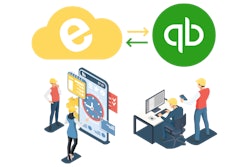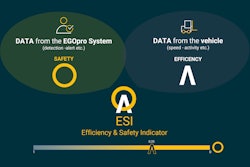Software vendors and consultants have boiler plate implementation-team org charts with a box at the top labeled “Executive Sponsor.” It's the role with the greatest potential to make or break a construction firm's software implementation, but far too many contractors undervalue the executive sponsor position and fail to understand its significance.
The executive sponsor on an enterprise resource planning (ERP) system implementation serves as liaison between the ERP steering committee – those who selected the new system – and the project team – those charged with integrating the software with the firm's business. "Liaison" may be an understatement.
The steering committee didn't simply select new software, they created a vision of how technology should help make the company more successful. The executive sponsor's job is to ensure the ERP system helps deliver that vision.
Implementations are complex; they touch nearly every aspect of the operation. There is no single right answer to many questions, but some workable answers can diverge from the steering committee's vision. One of the best ways to ensure that the way your firm ends up using the software matches your technology vision is to staff the implementation properly.
In my experience, the executive sponsor is typically someone at or near C-level management nominated by the firm’s executive team or ERP steering committee. Implementations can proceed without their guidance. Some will fail as a result. Others will be called "successes" in spite of poor direction. An implementation properly sponsored seldom stretches the definition of success.
Migrating from a legacy system to a new ERP is no trivial task. There are good reasons firms do not do this every day, every year, even every decade – it is expensive, it is time consuming, it is challenging, and it can be transformational. The team assembled to implement the system should not be made up of spare parts and random odds and ends.
The best candidates
Understanding what an executive sponsor must be able to do makes the list of candidates very short.
It's not a full time job and, thankfully, not a permanent one. The project manager devotes 100% of his or her time to the implementation. The executive sponsor takes more of a guidance, and (strong) advisory role.
It's no walk in the park, though. The executive sponsor will likely put in some extra time, particularly if there isn't any help with his or her day job.
Consultants' forms say the duties of the executive sponsor include:
- Liaison between management and the ERP team as well as external resources
- Project manager's sounding board for issue resolution
- Ensure internal resources are made available
- Assist in developing project budgets and approval of change requests
- Participate in project-level meetings
- Assist in conflict resolution
Here's a little more about what each of these really means:
Liaison between internal management and the ERP team and external resources. The executive sponsor needs to be someone the CEO, president, other officers, the board, the implementation team, and company employees respect and listen to. The sponsor should have no problems communicating with confidence at any level. It is not uncommon to see the CEO, president, CFO or other top company executive actually take on the executive sponsor role.
Project manager's sounding board for issue resolution. The executive sponsor must understand the organization's current state, and as a member of the ERP/technology steering committee, also understand its desired future state. The project manager must be able to discuss issues with the executive sponsor without first explaining the entire concept. The project manager must have confidence in the executive sponsor’s knowledge, ability, and authority.
Ensure internal resources are made available. When it is time to marshal resources (internal, external, funding, etc.), the executive sponsor must have the authority and political connections to make it happen.
Assist in developing project budgets and approval of change requests. Implementations often have a public dollar value and a not-so-public amount. The executive sponsor must have the ability to commit the discretionary amount, or at least the confidence to take requests to firm's executive team for approval. The board may need to approve large requests, but the executive sponsor should have some discretion.
Participate in project meetings. The project manager needs to manage the implementation day to day, but executive sponsors are too often unaware of important events and issues. An executive sponsor should get a regular report including progress, schedule, budget, issues, staffing, etc. Ideally, this would be a weekly face-to-face that includes other key members of the project team. Vendor(s) can add value, as well.
Assist in conflict resolution. The executive sponsor must know the business rules and processes to help facilitate issue resolution. While the executive sponsor must have confidence in his or her self in order to resolve issues, they must also be confident enough to seek the advice of others as needed. Management must be confident that the executive sponsor will make good choices, including when to involve them in issues. The project manager, the implementation teams, and the staff must be confident in the executive sponsor’s knowledge and willingness to support proposed solutions. The executive sponsor must be able to get issues put to bed in a reasonable amount of time in order to keep the schedule.
Handling the politics
The executive sponsor must be as immune as possible to the dreaded “end around” – disgruntled parties who take their grievance to the executive sponsor’s peers or superiors. Nobody wants to abandon an opportunity because a group on the implementation team couldn't sell a good idea to the project manager or the executive sponsor.
At the same time, nothing will undermine the credibility of the executive sponsor more than to have his or her decisions regularly or even occasionally reversed, particularly by team members who circumvented the implementation hierarchy. The company needs an executive sponsor who can make a decision and then make that decision stick. The successful executive sponsor also needs to know when to take an issue to the firm’s executive team.
An executive sponsor must have the ability, not just the potential, to cut across an organization's various structural and political fiefdoms. The executive team must have confidence in the sponsor and support his decisions – not simply wipe their collective brow and give thanks that none of them that was nominated.
Bob Stewart has over 20 years of experience working with construction-specific ERP software packages. Bob is a founding partner and principal consultant for Construction Change Partners. Construction Change Partners help construction companies evaluate, select, and implement the software they need to help run their businesses more effectively. Bob can be reached at [email protected]

















